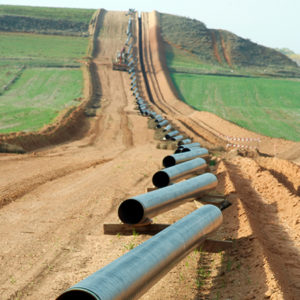Groups file comments against initial steps to drill and frack in South Yorkshire and Derbyshire
Brussels, Belgium – Food & Water Europe and Food & Water Watch filed formal comments today opposing plans by the international chemical company Ineos to begin the process of hydraulic fracturing, or fracking, in England. To date, this highly harmful process of natural gas extraction has not taken hold in the country, but Ineos hopes to change that by drilling exploratory wells in both Harthill, South Yorkshire and Bramleymoor Lane, Derbyshire. The groups submitted comments on both proposals indicating that these planned drillings are the first steps in what would inevitably become a full-blown, highly invasive fracking operation in the region, destroying rural landscapes and threatening public health and safety in nearby communities. Any approval granted for initial exploration would lead to negative and irreversible effects on the globally-esteemed national treasure Sherwood Forest. The groups urged the respective local Councils to reject Ineos’ applications and protect their communities.
The comments submitted by the groups detail the widespread impacts of fracking in places around the world where the extreme oil and gas extraction system is deployed, including poor air quality, drinking and surface water contamination, and land alterations. In addition, they point out the particularly poor environmental and public safety record of Ineos. For example, in Grangemouth, Scotland, where Ineos operates a massive chemical plant, the company has breached health and safety regulations 34 times in the last four years alone. The facility has been officially condemned as “poor” for pollution levels for three years in a row, while experiencing more than 20 staff injured since the start of 2015.
“I don’t think there’s a clear, adequate degree of understanding here among local authorities regarding exactly what fracking would mean for this countryside,” said Wenonah Hauter, executive director of Food & Water Watch and Food & Water Europe, who recently visited threatened communities in the UK. “I would advise any local authority who is considering going along with fracking to consider thoroughly the inevitable and irrevocable harm it would bring to this region. Once fracking is let in, it is here to stay.”
Fracking and related industrial activity is also a significant source of methane, a highly potent greenhouse gas. As long as government officials allow companies like Ineos to pursue continued fossil fuel development, we will never be saved from the impending climate crisis we now face. Instead of greenlighting irresponsible energy projects like the Ineos wells and prolonging our addiction to damaging fossil fuels, our officials should be pursuing renewable energy mandates.
Shale Gas Bramleymoor Lane Submission:
https://www.foodandwatereurope.org/wp-content/uploads/2017/07/FoodandwaterEuropeFWE-FWW_Ineos_ShaleGasBramleymoorLane_Submission.pdf
ShaleGasPlansHarthill_Submission:
https://www.foodandwatereurope.org/wp-content/uploads/2017/07/FoodandswaterEuropeFWE-FWW_Ineos_ShaleGasPlansHarthill_Submission.pdf
Contact:
Frida Kieninger, – +32 (0) 2893 1045 – [email protected]
Scott Edwards – +1 202.683.4969 – [email protected]



